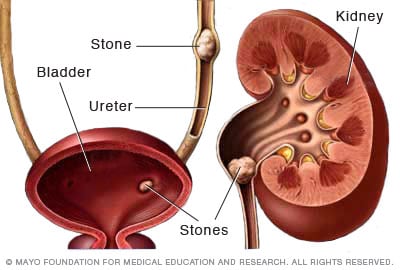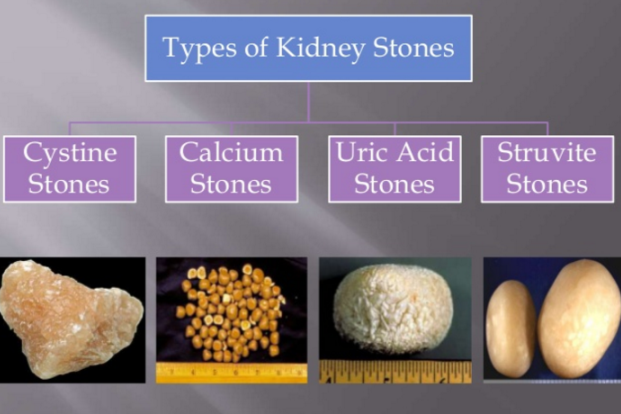Just how to Distinguish In Between Kidney Stones vs UTI: Key Variables and Diagnostic Tips
Just how to Distinguish In Between Kidney Stones vs UTI: Key Variables and Diagnostic Tips
Blog Article
Checking Out the Manifestations and Causes of Kidney Stones in Contrast to Urinary System System Infections: A Detailed Guide
The exploration of kidney stones and urinary system system infections (UTIs) discloses an intricate interplay of symptoms and underlying causes that require cautious evaluation. While both conditions can cause hematuria, they provide unique scientific functions and develop from various etiological aspects. Comprehending the nuances of each condition is important for efficient diagnosis and management. What are the key differences in their signs and symptoms, and just how might these educate treatment techniques? The solution to these questions might give essential understandings into the prevention and treatment of these typical urological problems.
Review of Kidney Stones
Kidney rocks, likewise referred to as kidney calculi, type when particular compounds in the pee crystallize and aggregate, leading to the growth of hard down payments within the kidneys. These stones can differ in size, varying from a grain of sand to a golf ball, and can be made up of various products, the most usual being calcium oxalate, uric acid, struvite, and cystine. The formation of kidney rocks is affected by a number of factors, including nutritional practices, liquid intake, and hereditary proneness.
Signs of kidney rocks may include extreme pain in the back or side, blood in the pee, nausea or vomiting, and constant peeing, especially as the rock moves through the urinary system system. Medical diagnosis normally involves imaging research studies such as ultrasound or CT scans, together with urinalysis to determine the rock's composition.
Treatment alternatives vary based on the dimension and kind of rock, as well as the intensity of signs and symptoms (Kidney Stones vs UTI). Small stones may pass normally with raised fluid intake, while larger stones might call for clinical interventions such as lithotripsy or surgical removal. Comprehending the pathophysiology and danger variables associated with kidney stones is vital for efficient avoidance and monitoring
Overview of Urinary Tract Infections
Urinary tract infections (UTIs) prevail bacterial infections that affect any part of the urinary system, including the kidneys, ureters, bladder, and urethra. They primarily happen when germs, typically from the intestinal system, go into the urinary system, causing inflammation and infection. UTIs are categorized into two main kinds: difficult and straightforward. Straightforward UTIs normally take place in healthy individuals with normal urinary system systems, while challenging UTIs may occur in individuals with hidden problems, such as structural abnormalities or endangered body immune systems.
The prevalence of UTIs is especially higher in females than guys, mainly as a result of anatomical differences, such as a much shorter urethra. Risk variables include sex-related activity, certain contraceptive techniques, urinary retention, and dehydration. The medical diagnosis of UTIs is generally validated through pee tests, which might reveal the visibility of bacteria, leukocyte, or red blood cells.

Signs of Kidney Stones
The pain related to kidney rocks can manifest in various ways, typically leading people to look for clinical focus. Among one of the most typical signs and symptoms is extreme discomfort, typically local in the reduced back or side, which might emit to the abdominal area or groin. This discomfort, usually described as sharp or cramping, can occur suddenly and may fluctuate in intensity.
In addition, people may experience hematuria, or blood in the pee, which can vary from tiny total up to visible discoloration. This symptom may be accompanied by adjustments in urinary system behaviors, such as boosted regularity or seriousness, as well as discomfort throughout peeing. Queasiness and vomiting are also widespread, usually arising from the body's reaction to intense discomfort.
In some situations, people may experience high temperature and chills, especially if a second infection establishes as a result of the obstruction brought on by the rocks. top article In general, the mix of extreme pain, hematuria, modified urinary system patterns, and gastrointestinal signs can give significant understanding right into the presence of kidney stones, calling for punctual medical assessment and treatment. Recognizing these symptoms is important for prompt medical diagnosis and effective management of the condition.
Signs And Symptoms of Urinary System System Infections
Infections within the urinary system tract frequently provide an array of distinct signs and symptoms that can significantly impact every day life. The most typical signs consist of a relentless impulse to pee, usually accompanied by a burning sensation during urination, known as dysuria. People might additionally experience raised regularity of peeing, generating tiny quantities of urine each time.
Other noteworthy symptoms include fetid or over cast pee, which may indicate the presence of bacteria or pus. In many cases, pee might appear red or pink as a result of the visibility of blood, a problem understood as hematuria. Additionally, people might experience pelvic discomfort or pressure, which can better aggravate the sensation of seriousness.
Systemic symptoms might likewise manifest, Discover More Here such as high temperature, cools, and fatigue, specifically if the infection has actually ascended to the kidneys. It is important to identify these signs early, as neglected urinary system tract infections can lead to extra serious complications. Kidney Stones vs UTI. Motivate medical focus is encouraged when these symptoms are observed, permitting suitable analysis assessment and therapy to minimize discomfort and stop further health and wellness news issues
Reasons of Each Problem
Frequently, kidney stones and urinary system infections emerge from distinctive yet in some cases overlapping causes that can affect individuals differently. Dehydration, inadequate fluid consumption, and high-sodium diet regimens can aggravate these problems, promoting crystallization within the urinary tract.

Recognizing these unique causes is vital for prevention and therapy. Kidney Stones vs UTI. While lifestyle alterations may alleviate the risk of kidney rocks, appropriate hygiene and punctual treatment of urinary system tract infections are necessary for reducing their reoccurrence and associated issues
Verdict
In summary, kidney stones and urinary tract infections present unique signs and underlying reasons. Kidney rocks are defined by serious discomfort and metabolic aspects, while urinary system tract infections mostly include bacterial infections leading to urinary urgency and discomfort.
The exploration of kidney rocks and urinary system system infections (UTIs) discloses a complicated interaction of signs and underlying causes that require careful examination.Urinary system system infections (UTIs) are typical bacterial infections that affect any component of the urinary system, consisting of the kidneys, ureters, bladder, and urethra.Often, kidney stones and urinary system infections develop from unique yet in some cases overlapping causes that can influence people in a different way.In summary, kidney rocks and urinary tract infections existing unique symptoms and underlying causes. Kidney rocks are defined by severe discomfort and metabolic elements, while urinary system infections mainly involve microbial infections leading to urinary necessity and discomfort.
Report this page